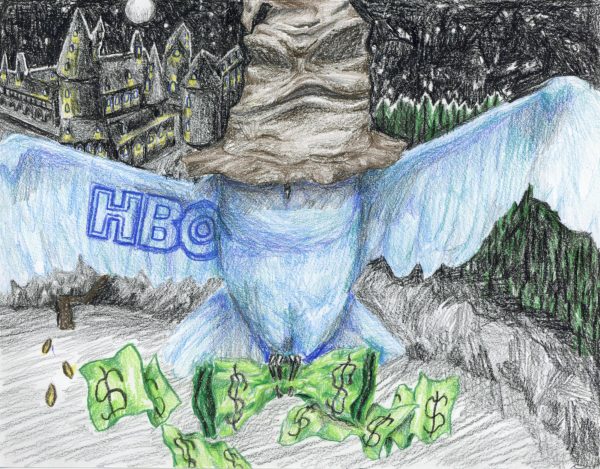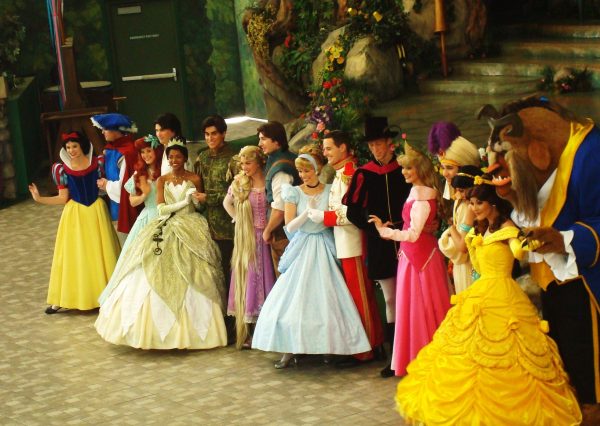“What’s Your Problem?”
Incident on bus prompts sophomore to reflect on racial disparity
My mom told me a story one day when I came home from school visibly distressed. A white boy behind me on my bus ride home had used the n-word six times in a two-minute time period. I was beyond angry and bothered by his ignorance and stupidity.
I told her all of this, and she sympathized with my anger and began to tell me about a similar experience she had in her college days. My mom went to college in deep-south Mississippi, and her school was predominately white, just like her high school in Waco, Texas. She was attending her college class when a black boy began to share his experience at the local grocery store with the class.
He had gone to the grocery store to acquire one of life’s basic needs — food. During his shopping trip, a policeman had followed him through the store. The official watched him pay for his food, and then proceeded to follow him out to his car. At this point, the policeman talked to him for the first time during this stalk, saying, “Is this your car?”, implying that he was about to commit motor vehicle theft. The cop had assumed that this college student was a criminal just by the color of his skin. My mom’s peer had answered the rest of the cop’s questions politely, and once he had told the officer where he went to school, he was finally free to go. All he had wanted to do was go to the grocery store.
My mom and her white peers were shocked by his experience. They didn’t have to deal with these problems on a daily basis. They didn’t have to think twice about going to the grocery store or unlocking their car. But he explained that it happened to him all the time.
The boy behind me on the bus may not have meant that word in the way that it was intended to be used, but it still doesn’t make it OK. At first, I wasn’t sure he’d even said it. It was so bad, that I gave him the benefit of the doubt. But then he said it two more times. The third time, I couldn’t control my anger. I whipped around and looked him straight in the eyes and said, “You aren’t black, so don’t say that.” This confrontation was met with a defensive and challenging, “What’s your problem?”
Here’s the problem, and it’s not just mine. It’s a problem for an entire minority — African Americans. By saying this word, you are condoning the imprisonment of blacks as slaves and oppression of blacks in current day.. This word is never OK for someone outside of the African American race to say in any situation. Just because someone is born white doesn’t give them the power to wield this word as a weapon or even flippantly. It is not meant for the white population.
In ninth grade, I read “To Kill a Mockingbird” by Harper Lee in my English class. This book was written in a time where this word was said thoughtlessly because it was a time when blacks were thought of as less than equal, a point of view some people still hold to this day. I remember my teacher explaining to us that we read this novel so we knew how cruelly the blacks had been treated and to further educate us on the gravity of the n-word.
While this short introduction to the subject of the division between races was a good start, we need more than this to help teens understand the impact they can have with their words. This book only made us pause for a second to sympathize with a problem that doesn’t affect most of us as white people before moving on with our hectic lives. If we ignore the problems of another race, our inherited white privilege that can be used as a platform to advocate for others goes to waste. When we say this word, we are not only dehumanizing an entire group of people, but we are also potentially reinforcing stereotypes, such as the assumption that all blacks are criminals. These stereotypes led to my mom’s peer being unfairly stereotyped by a cop.
Westlake is predominately white and has a lack of exposure to different cultures and people. This distance can cause ignorance and stereotypes to grow. Without exposure to the black community, it is impossible to create a much-needed change in the world. The Mississippi cop let stereotypes lead him to follow a young college student who was just shopping for groceries, and the Westlake boy on the bus thought the n-word was almost synonymous with “bro” or “dude.” We need better education on why these stereotypes aren’t OK, be exposed to different types of people and venture outside of the “Westlake Bubble.”





